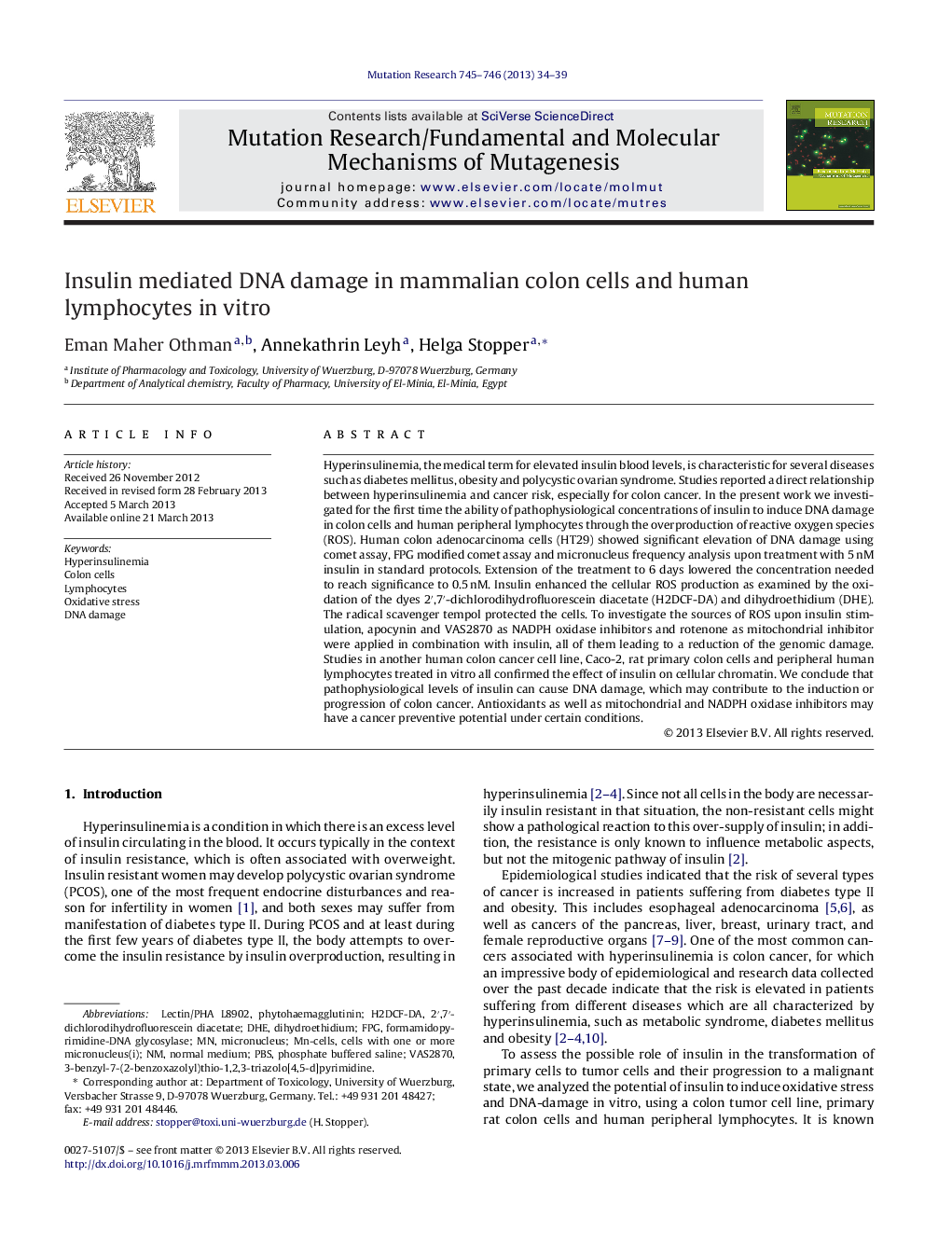| کد مقاله | کد نشریه | سال انتشار | مقاله انگلیسی | نسخه تمام متن |
|---|---|---|---|---|
| 2146396 | 1548343 | 2013 | 6 صفحه PDF | دانلود رایگان |

• Insulin produces DNA damage in mammalian colon cells and human lymphocytes in vitro.
• Insulin stimulates mitochondrial and NADPH oxidase derived ROS production.
• Antioxidants, mitochondrial and NADPH inhibitors reduce the genotoxicity of insulin.
Hyperinsulinemia, the medical term for elevated insulin blood levels, is characteristic for several diseases such as diabetes mellitus, obesity and polycystic ovarian syndrome. Studies reported a direct relationship between hyperinsulinemia and cancer risk, especially for colon cancer. In the present work we investigated for the first time the ability of pathophysiological concentrations of insulin to induce DNA damage in colon cells and human peripheral lymphocytes through the overproduction of reactive oxygen species (ROS). Human colon adenocarcinoma cells (HT29) showed significant elevation of DNA damage using comet assay, FPG modified comet assay and micronucleus frequency analysis upon treatment with 5 nM insulin in standard protocols. Extension of the treatment to 6 days lowered the concentration needed to reach significance to 0.5 nM. Insulin enhanced the cellular ROS production as examined by the oxidation of the dyes 2′,7′-dichlorodihydrofluorescein diacetate (H2DCF-DA) and dihydroethidium (DHE). The radical scavenger tempol protected the cells. To investigate the sources of ROS upon insulin stimulation, apocynin and VAS2870 as NADPH oxidase inhibitors and rotenone as mitochondrial inhibitor were applied in combination with insulin, all of them leading to a reduction of the genomic damage. Studies in another human colon cancer cell line, Caco-2, rat primary colon cells and peripheral human lymphocytes treated in vitro all confirmed the effect of insulin on cellular chromatin. We conclude that pathophysiological levels of insulin can cause DNA damage, which may contribute to the induction or progression of colon cancer. Antioxidants as well as mitochondrial and NADPH oxidase inhibitors may have a cancer preventive potential under certain conditions.
Journal: Mutation Research/Fundamental and Molecular Mechanisms of Mutagenesis - Volumes 745–746, May–June 2013, Pages 34–39